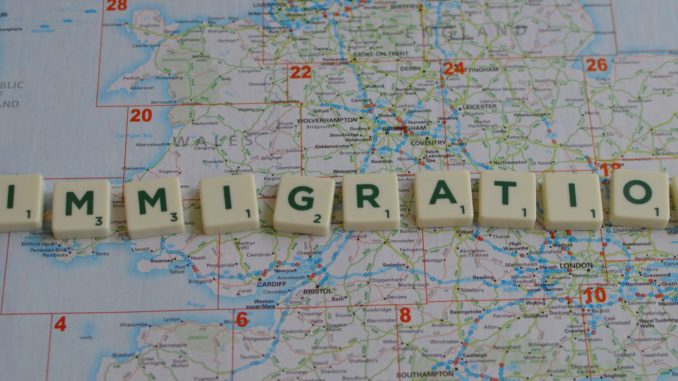
It’s time to discuss the overall issue of immigration and solve it, once and for all, right here and now (well, at least during the next few days in 3 parts).
That should be no problem, right?
The first question about immigration is, do we even want immigration at all?
Many on the right are taking the position that we need to put a stop to all immigration, illegal and legal. Setting aside the legal vs. illegal issue for a moment, consider whether immigration itself is a net positive or a net negative.
We all know that our nation was built on immigration, creating a melting pot of people and cultures.
Has this been a good thing?
Yes, the melting pot of America is a great thing. I’m talking about “diversity”, but not as far as the left defines it, which basically boils down to diversity of appearance. Rather, that the diversity of ideas, knowledge, and cultures is most definitely a good thing.
Empirical evidence is clear that nations that isolate themselves and aggressively protect their culture from any change, simply get left behind. The nations that work together by sharing knowledge, innovations, and cultures, are more advanced, more developed, and more cooperative.
It’s clear that being fully engaged in that overall knowledge-sharing around that world has been wonderful for those who do it and disastrous for those who do no. Thomas Sowell’s book, “Wealth, poverty and politics: An international perspective”, puts this topic in perspective very well, and I would recommend that everyone take a look at it for a thorough analysis.
The United States is unique in that not only do we fully engage in cooperative international efforts, but we also created a country that brings in all of these different ideas, knowledge, and cultures within our borders.
The result is undeniable in that we have led the world in advancements, innovation, and standard of living.
Therefore, I conclude that immigration, in general, is a net positive.
The question then moves to how do we bring in the positive aspects of immigration while leaving out the negative? Does merit-based immigration solve all of the problems where legal immigration is concerned?
With merit-based immigration, we would only be allowing people with certain proven characteristics to immigrate here. This would be based on such things like their level of education, whether they can speak English, and their job skills.
Many on the right believe this is just common sense…a no-brainer. But is it that simple?
For demonstration purposes, let’s say that we have a country called “Poopholistan”.
Poopholistan is blessed with certain natural resources or other advantages that they may be able to use in order to participate and enjoy in the world’s advancements, but they are laden down with internal strife. The problems in Poopholistan are a constant issue for the rest of the world to have to deal with in various ways, most importantly, the threat that the turmoil presents to other countries’ safety and security, including our own.
This presents a couple of interesting questions to consider:
1. Would it benefit us in the long run to simply remove their top performing people from their country and bring them to ours using a merit-based system? Would that make the problems in Poopholistan better or worse for them and for the world?
2. Would it benefit us in the long run to take in some of the less “merited” people from Poopholistan?
3. Wouldn’t our country and the rest of the world be better off in the long run if Poopholistan overcame their internal turmoil and became a productive, cooperative player in the world?
4. Should our immigration policies consider at all the human compassion aspect of things, or should it only consider what’s the immediate benefit to us?
Many people believe that we shouldn’t worry about the rest of the world at all and focus on ourselves…they are not our problem and we are not the policemen of the world and shouldn’t try to be.
To some, it’s not only “America First”, but rather “America Only”.
Personally, I believe that we are either the leader of the free world, or we’re not.
If we are the leader, then we have an obligation to consider all of these aspects of the situation and apply our very unique philosophies espoused in our founding principles and our American Exceptionalism.
And if we are not the leader, then who is, and what will that mean for the world?
Tomorrow, part two of this immigration editorial series will cover illegal immigration and why and how it should be stopped.
Photo by Jeff Djevdet

1 Trackback / Pingback
Comments are closed.